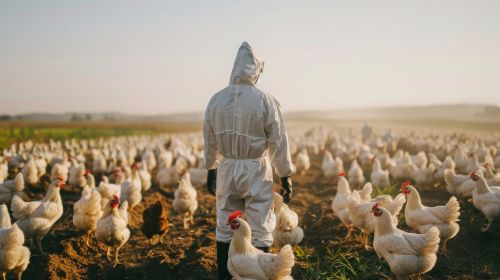392

Biosecurity is becoming the central element in the operation of poultry farms in Romania, as sanitary risks remain high across Europe. According to EFSA – Animal Health Overview 2024, avian influenza continues to circulate sporadically in certain EU regions, which requires maintaining a high level of control in all commercial units.
ANSVSA, in its 2024 reports, indicates that poultry farms are required to implement strict protocols regarding staff access, sanitation, flock monitoring, and vector control. These measures are aligned with European legislation and represent an essential criterion for authorization and continued operation.
For farms, investments in automated systems for ventilation, air filtration, disinfection, and continuous monitoring are increasingly necessary. According to DG AGRI, units that adopt modern technologies face a lower risk of outbreaks and have more stable productivity. Additionally, the implementation of digital monitoring systems provides farmers with better visibility over flock health and shortens reaction times in case of sanitary suspicion.
The new standards also increase operational costs, but farms that invest in biosecurity benefit from business continuity and access to markets that require strict certification. Biosecurity is not only a legal obligation but also an economic stability tool for the poultry sector.
(Photo: Freepik)




